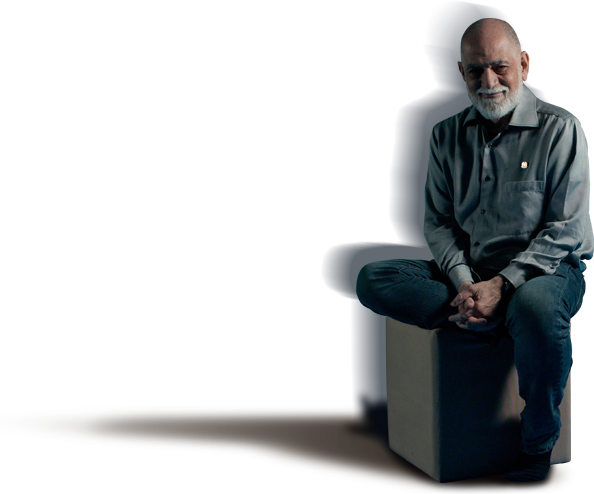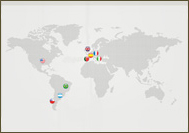httpv://youtu.be/tpziz8cJMaI
Segundo o estudo abaixo, publicado pela revista Época de 16 de Outubro de 2006, todos os veículos juntos – automóveis, motocicletas, ônibus, caminhões, tratores e outros – produzem 4% da poluição do ar.
No entanto, a poluição produzida pela criação de ruminantes (28%) mais seu esterco (4%), juntos produzem 32% da contaminação da atmosfera. A desproporção é colossal!
Conclusão: os maiores responsáveis pela poluição e pelo comprometimento do ar que respiramos, pelo aquecimento global e pela destruição da camada de ozônio são os comedores de carnes que sustentam uma indústria pecuária sem precedentes na história da humanidade.
Confira no gráfico abaixo (clique no gráfico para ampliá-lo):
Arnaldo Jabor fala sobre Carne e Meio Ambiente (Meat and Environment)
httpv://www.youtube.com/watch?v=xRX6NguImAE
Como peças vivas de um gigante quebra cabeça espalhadas pelo mundo, os genes amábilis pouco a pouco vão se encontrando e cada vez mais pessoas que AMAM surgem nesse mundo, vindas dos mais diversos credos, filosofias e estilos de vida com o intuito de fazer desse pequeno grão de areia azul um lugar melhor para se viver, com mais respeito, dignidade e amor entre todas as espécies.
Nós do SwáSthya sabemos do nosso compromisso e temos em ti, querido Mestre, nosso farol para nos orientar nesse caminho. E acredito que devemos ser, se não ativistas ativos, ao menos propagadores de idéias e ideais que ajudem a humanidade a ter um futuro digno.
Para tanto indico um site que contém um documentário nacional sobre como a criação de animais para alimentação contribui de forma muito significativa para a degradação do meio ambiente e a desigualdade social, o documentário Hábitos e Habitat é um prólogo para outro, Meat the Truth, mais longo, mais detalhado e mais incisivo.
http://www.habitosehabitat.org/
http://video.google.com/videoplay?docid=2756277227675684050#
Com amor,
Rogério
Oi Mestre!
Hoje no site UOL sairam duas reportagens interessantes. Uma fala sobre a importância do curry em nossa alimentação e a outra fala do vegetarianismo contra a mudança climática.
Espero que ache interessante também!
Beijos e mais beijos da Flavinha
Jardins-SP
Links:
Para saber quantos milhares de animais já foram abatidos desde que você abriu este blog, consulte informativo no final da coluna da direita.
Cut red meat intake and don’t eat ham, say cancer researchers
World Cancer Research Fund advises people to limit consumption of beef, pork and lamb and avoid processed meat

Cancer experts have issued a fresh warning about eating red and processed meat after “the most authoritative report” on the subject blamed them for causing the disease.
The World Cancer Research Fund (WCRF) is advising people to limit their intake of red meats such as beef, pork and lamb, and to avoid processed meat such as ham and salami altogether. “Convincing evidence” that both types of meat increase the risk of bowel cancer means people should think seriously about reducing how much they eat, it recommends.
The charity kickstarted a global debate in 2007 when it published a study which identified meat as a risk factor for a number of different forms of cancer.
WCRF-funded scientists at Imperial College London led by Dr Teresa Norat studied 263 research papers that have come out since then looking at the role of diet, weight and physical activity in bowel cancer. An independent panel of leading cancer experts then reviewed their conclusions. “For red and processed meat, findings of 10 new studies were added to the 14 analysed as part of the 2007 report. The panel confirmed that there is convincing evidence that both red and processed meat increase bowel cancer risk,” said the report .
“WCRF recommends that people limit consumption to 500g (cooked weight) of red meat a week – roughly the equivalent of five or six medium portions of roast beef, lamb or pork – and avoid processed meat,” it added. About 36,000 Britons a develop bowel cancer every year, and some 16,500 die from it. It is the UK’s second biggest cancer killer after lung cancer.
About 17,000 cases a year (43%) could be prevented if people ate less meat and more fibre, drank less, maintained a healthy weight and kept active, the WCRF says.
Its 850-page report, releasedon Monday, is “the most authoritative ever report of bowel cancer risk”, cancer prevention experts claim.Professor Alan Jackson of Southampton University, the chair of the WCRF’s continuous update project expert panel, said: “On meat, the clear message that comes out of our report is that red and processed meat increase risk of bowel cancer and that people who want to reduce their risk should consider cutting down the amount they eat.”
Growing concern about red and processed meat prompted the government in February to advise consumers for the first time to consider cutting down. That came after the Scientific Advisory Committee on Nutrition (SACN), experts who advise the government, examined the evidence on the subject. It decided that those meats probably increase the risk of bowel cancer.
People who eat 90g or more a day should cut down to the UK average of 70g, SACN recommended. It advised having smaller portions or eating those meats less often. A 70g serving could be three slices of ham, a lamb chop or two standard beef burgers.
WCRF’s review has also firmed up from “probable” to “convincing” its view of the protection against bowel cancer afforded by eating foods containing fibre, such as wholegrains, pulses, fruit and vegetables.
Milk, garlic and dietary supplements containing calcium also “probably” reduce the risk, the expert panel concluded.
But farmers’ leaders denounced the WCRF’s new report and accused it of deliberately choosing the first day of National Vegetarian Week to publish it in order to maximise publicity for conclusions which the charity first reached years ago.
Chris Lamb, a spokesman for BPEX and EBLEX, which represents England’s pig, beef and lamb farmers, said: “Average consumption has been in or around 500g a week for a few years. The vast majority of consumers aren’t exceeding this and don’t have to worry about [this]”, he said.
The risks identified by the WCRF were unchanged, he stressed.
Lamb argued it was unfair for the WCRF to highlight meat as a contributory cause of bowel cancer when the main risk was to people who are generally unhealthy, for example by consuming too much food, alcohol or fizzy drink.
“They aren’t assisting consumers. Consumers eat and enjoy meat as part of a balanced diet, and meat plays a valuable part in that balanced diet”, said Lamb. “If you eat or drink anything in excess it’s a danger. Therefore, if you can pick on meat in order to get headlines, then you aren’t actually helping consumers.”
Professor Dame Sally Davies, the chief medical officer for England, said red meat can form part of a healthy, balanced diet. “It is a good source of protein and vitamins and minerals, such as iron, selenium, zinc and B vitamins,” she said, “but people who eat a lot of red and processed meat should consider cutting down. The occasional steak or extra few slices of lamb is fine but regularly eating a lot could increase your risk of bowel cancer.”
Bowel Cancer UK chief executive Deborah Alsina said: “The report significantly adds to the available evidence into the increased risk of bowel cancer from eating too much red and processed meat; and strengthens the evidence of how eating food with fibre in it protects people against the disease.
Hazel Nunn, a senior health information officer at Cancer Research UK, said: “With barbeque season just round the corner, this is a timely reminder that how much alcohol you drink, how active you are, your weight, and how much red and processed meat and fibre you eat can all have a bearing on your risk of bowel cancer.”
• Growing numbers of lung cancer patients are having life-saving operations thanks to advances in surgical techniques. The proportion of patients with the disease who undergo surgery has risen from one in 11 in 2005 to one in seven last year, according to a study by the NHS Information Centre. Lung cancer kills more people than any other form of cancer.
Human Physiology
Although many humans choose to eat a wide variety of plant and animal foods, earning us the dubious title of “omnivore,” we are anatomically herbivorous.
Teeth, Jaws, and Nails
Humans have short, soft fingernails and pathetically small “canine” teeth. In contrast, carnivores all have sharp claws and large canine teeth capable of tearing flesh.
Carnivores’ jaws move only up and down, requiring them to tear chunks of flesh from their prey and swallow them whole. Humans and other herbivores can move their jaws up and down and from side to side, allowing them to grind up fruit and vegetables with their back teeth. Like other herbivores’ teeth, human back molars are flat for grinding fibrous plant foods. Carnivores lack these flat molars.
Dr. Richard Leakey, a renowned anthropologist, summarizes, “You can’t tear flesh by hand, you can’t tear hide by hand. Our anterior teeth are not suited for tearing flesh or hide. We don’t have large canine teeth, and we wouldn’t have been able to deal with food sources that require those large canines.”
Stomach Acidity
Carnivores swallow their food whole, relying on their extremely acidic stomach juices to break down flesh and kill the dangerous bacteria in meat that would otherwise sicken or kill them. Our stomach acids are much weaker in comparison because strong acids aren’t needed to digest pre-chewed fruits and vegetables.
Intestinal Length
Carnivores have short intestinal tracts and colons that allow meat to pass through the animal relatively quickly, before it can rot and cause illness. Humans’ intestinal tracts are much longer than those of carnivores of comparable size. Longer intestines allow the body more time to break down fiber and absorb the nutrients from plant-based foods, but they make it dangerous for humans to eat meat. The bacteria in meat have extra time to multiply during the long trip through the digestive system, increasing the risk of food poisoning. Meat actually begins to rot while it makes its way through human intestines, which increases the risk of colon cancer.
Read author John Robbins’ discussion of the anatomical differences between humans and carnivores or review Dr. Milton Mills’ entire article on the topic to learn more.
Human Psychology
Humans also lack the instinct that drives carnivores to kill animals and devour their raw carcasses. While carnivores take pleasure in killing animals and eating their raw flesh, any human who killed an animal with his or her bare hands and ate the raw corpse would be considered deranged. Carnivorous animals are excited by the scent of blood and the thrill of the chase. Most humans, on the other hand, are revolted by the sight of blood, intestines and raw flesh, and cannot tolerate hearing the screams of animals being ripped apart and killed. The bloody reality of eating animals is innately repulsive to us, another indication that we were not designed to eat meat.
Fernando Diniz
Oi De,
Dando continuidade aos vídeos…
Meatrix II:
Meatrix II½:
Beijos,
Fernando Diniz
__________________
É sempre bom indicar sua unidade, cidade e país para que os demais colegas de blog possam localizar quem comenta e quem posta. Valeu.
Aline Anginski
Olá Mestre e amigos,
Recentemente vi o documentário Food Inc (Alimentos S.A), que trata dos “detalhes” que a grande indústria de alimentos dos Estados Unidos esconde dos consumidores. Apesar do filme ter sido produzido naquele país, sabemos bem como aqui no Brasil temos o teimoso (para não dizer desagradável) costume de copiar os modelos americanos.
O documentário é um pouco mais “forte” (digamos assim) que o “A carne é fraca”, mas é realmente muito bom ao mostrar como a indústria não cria animais e sim produz comida, desrespeitando todos os seres vivos, inclusive o ser humano.
Food Inc até recebeu uma indicação ao Oscar como Melhor Documentário de 2009. Ainda não há uma data prevista para a estreia no Brasil, mas no blog Desenvolvimento Sustentável (http://sustentavel-desenvolvimento.blogspot.com/) você consegue assistir ao documentário na íntegra com legendas em português. O filme é um dos primeiros posts.
Vale a pena conferir!
Um beijo
Aline
Unidade Batel – Curitiba
Food Inc. – Alimentos S.A.
Você já assistiu o DVD “A carne é fraca”? Procure assisti-lo. Ele foi publicado pelo Instituto Nina Rosa e a Uni-Yôga já realizou uma co-edição com ela. Acredito que se você procurar no Google vai encontrar esse material.
Por enquanto, vá assistindo o vídeo do link abaixo, enviado pelo Rafael, que trata do mesmo tema:
Olá Mestre ,
No sentido de contribuir, posto aqui o link de um documentário bem recente idealizado
pelo ” Partido dos Animais ” da Holanda.
É o complemento ao “An Inconvenient Truth” do Al Gore, que por motivos políticos, suprimiu os dados sobre a enorme influência da pecuária no aquecimento global.
http://video.google.com/videoplay?docid=2756277227675684050&hl=pt-BR
Com legendas em português.
Abraço
mais um pouco
http://www.vista-se.com.br/terraqueos/









